I knew the man didn’t like me as soon as I looked into his eyes. I hadn’t noticed him as I walked into the darkness of the museum toward the ticket booth. He was about 80 years old and wearing a Duke University baseball cap and directly in my path. He tapped his mask, indicating, without a word, that I was in violation.
I returned to my car and, appropriately attired, went back into the rock museum.
“I made a special trip here on my way home to see your exhibits. When I went through at the beginning of my vacation you were closed”, I explained to him.
He stared back in frosty silence.
“I want to know how people long ago quarried the stones without modern machinery,” I continued.
“The local people managed. Everything was great until people wanted fancy stuff and the Italians came to town.” he proclaimed.
His words triggered me. I had spent my months in lockdown researching the immigrants who had lived and worked in my area at the turn of the century. I had acquired dozens of out of print books trying to piece together real life stories and an overview of the world situation at the time. My search was because of my love of history, but it was also personal. This intolerant and uninformed man needed to know the importance of immigrants in the building of our nation.
And so I began, “I am Polish-American, second generation in this country. All my grandparents came over on ‘the boat’ to Ellis Island in the early 1900s to build a better future. They took the hardest, dirtiest jobs in the factories lining the Niagara River’s shore. On a historical tour, I discovered that around 1900, a group of Polish people were brought to an island in the middle of The Black River to work at the St. Regis Paper Mill. I was amazed that I knew nothing about this. I went to Deferiet, the village where they settled. The factory had long ago shut down.”

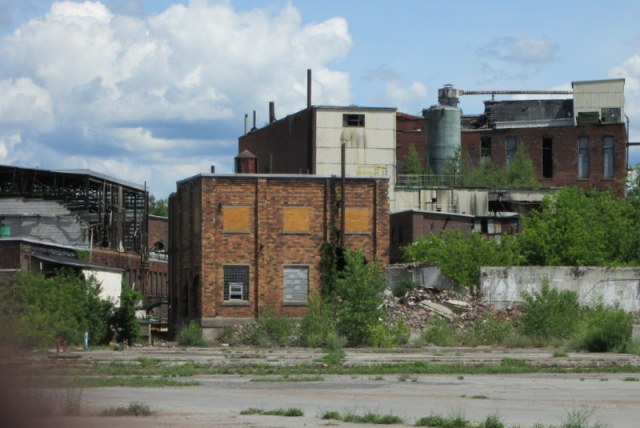


I went on, “Deferiet is still occupied. It was a company town; the styles of houses were repeated to keep costs down.”




“St. Rita’s Catholic Church still stands as does the building that housed the island’s school.”
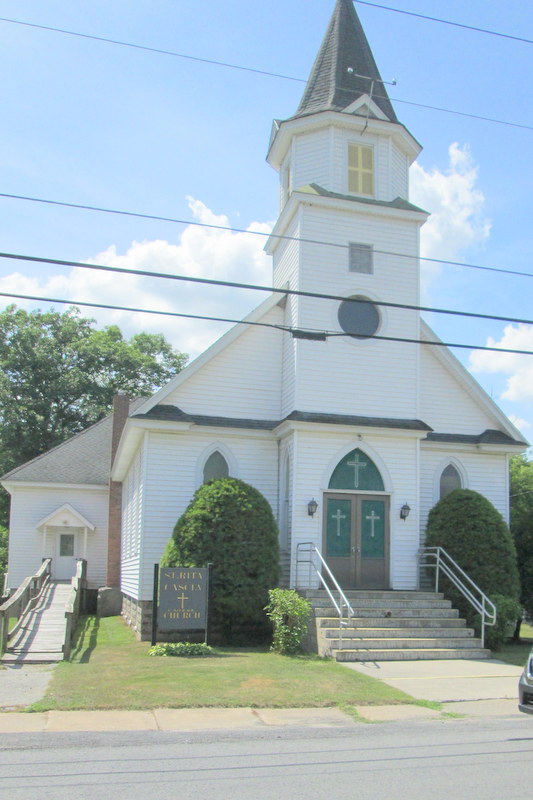

“I looked for a cemetery; apparently, the island town didn’t have room for one. Going to the nearest town, I found a Catholic Cemetery. In my travels, I many times found the Protestant and Catholic cemeteries separated and found it strange that these two Christian groups could not coexist in death. I looked for Polish names and found the graves of children who most likely were a part of the Deferiet community when their family worked in the paper mill.”

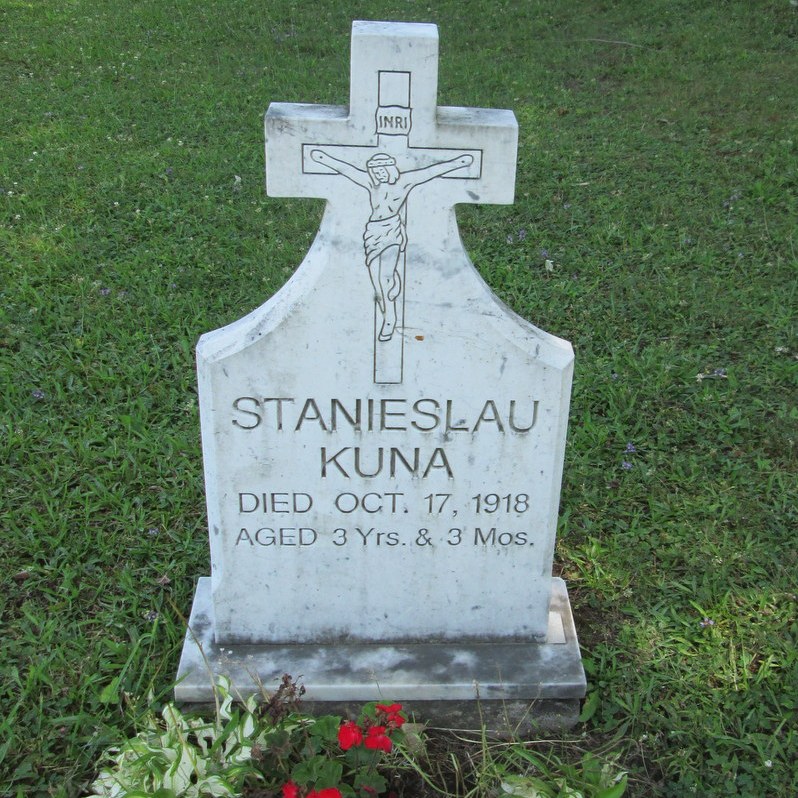

“I had to know more and found pictures from a story done by NPR.”


Italian and Polish workers at The St. Regis Paper Mill
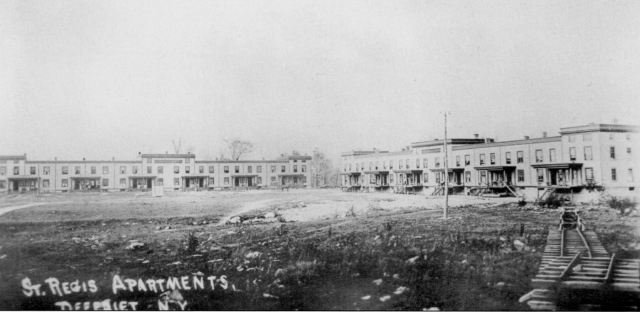
The Polish Block
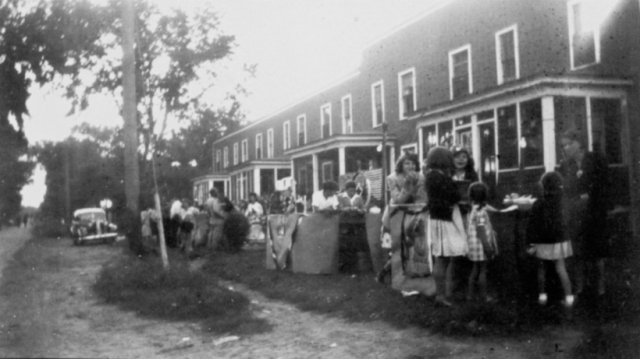
A later picture of the Italian block
“All you Polacks know how to do is dance,” the man in the chair said laughing.
My reaction was seasoned by two factors. First, I had learned over my life the safe haven of numbness, like a rabbit holding perfectly still until the danger passes. Plus I had heard the derogatory term for people of Polish descent a thousands times growing up. The lady in the ticket booth shook her head. The term did not get the reaction the man thought it would.
I asked the man about his background. He told me his name was Melchior. The name of one the wise men at Bethlehem? He said his friends called him “Melk”. He began a rather long and detailed summary of his life with a chapter about grade school. Then he covered junior high, high school, his experience in special forces in The Cold War and his time in Newfoundland as a Russian expert during The Cold War.
My pride at this time compelled me to interject. “Yes, I’ve been to Newfoundland.” And wanting to show off my history knowledge a little, I added, “I guess you were there after Churchill and Roosevelt were there.” I was referring to the two word leaders’ secret meeting during WWII in a boat off the coast of the Canada shore.
“Ya”, he replied, adding another 50 years to his life story. Additional degrees, important people he knew, important things he had done etc., etc., etc. He said he also had a degree in geology and I ran to my car again to show him the pieces of slag and finished iron I found by the remains of an old smelt tower in New Hampshire.
But all his important history didn’t seem enough for him, and he turned his attention to diminishing me again.
“I bet your Polack people were socialists and anarchists like our Italians here,” he added.
All my months of reading, searching the internet, and exploring my North Country to find hints in old quarries, lumber camps, old foundations, and cemeteries had prepared me well. I did not go numb.
“The Robber Barons, the wealthy elite, took advantage of the immigrants who built this country, Sir! It is a little-known fact that they were recruited in their native countries to come here to be laborers.”
The man laughed.
I continued, “During the industrialization of our country from 1870 to 1920, industrialists were given free rein by our government by laissez-faire, hands-off policies. As a result, corporations and trusts were formed, allowing the elimination of any competition and giving certain people much wealth and power. I’ve seen the evidence of The Gilded Age of Watertown, New York where the grandest houses were strategically built faraway from the mills that financed their construction.”





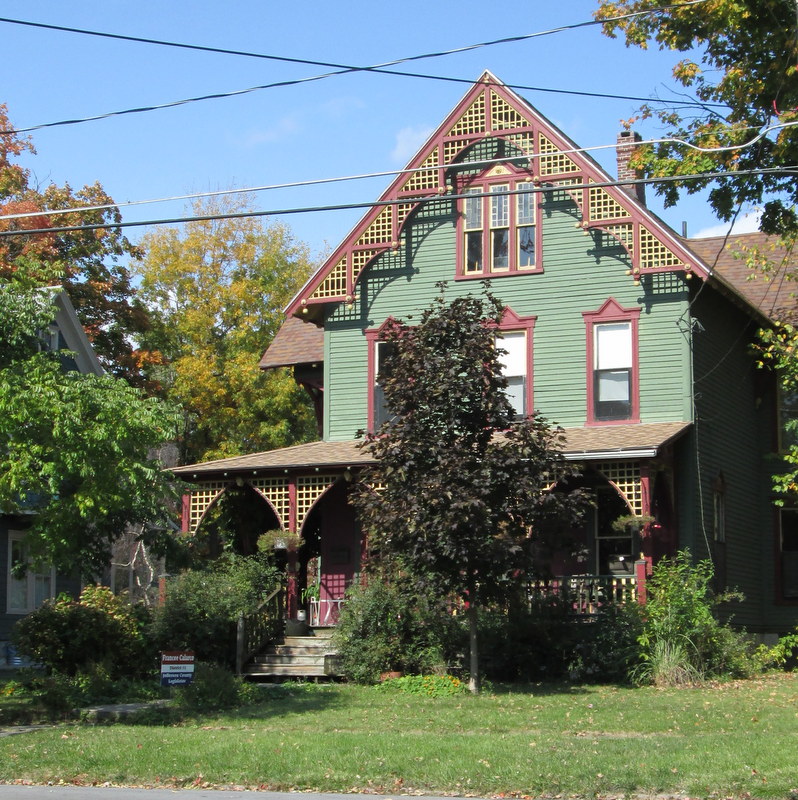
The man again remained silent so I continued, “The St. Regis Paper Mill was opened in 1902 and the factory laborers did their jobs well. It was a time of reform, workers were organizing, forming unions, and strikes were happening all over the US. The people of the Deferiet mill asked for higher wages and that the workday be reduced to three 8-hour shifts instead of two 12-hour shifts. Their requests were not met, and they went on strike. Since they lived in a town completely owned by St. Regis they were kicked out of their houses.

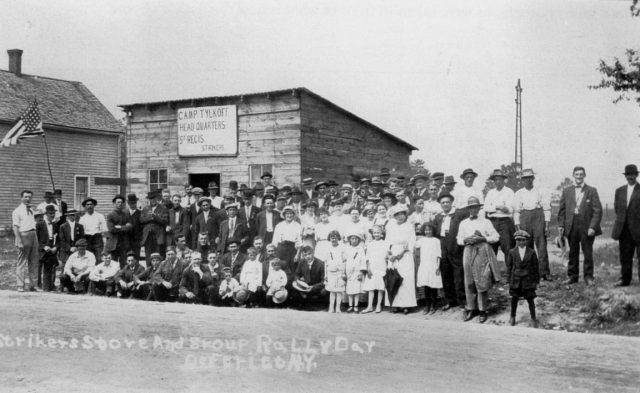

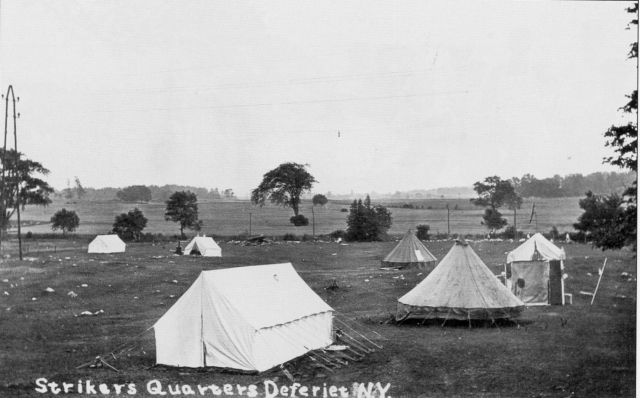
More silence. I went on. “Management recruited strikebreakers. Fights broke out, and government troops were summoned in September 1915. Many striking workers and their families moved in with friends; some moved away, and others lived in tents nearby. It wasn’t until 1917 that management agreed to settle and the workers who remained in the area returned to their jobs.”
The man in the chair wasn’t ready to give up his superiority and made another nasty remark. “I bet you come from a long line of Polack peasants.”
“I’m sure of it,” I replied with a smile. “I know I am because I’m 72, extremely healthy and strong. There is an old Polish proverb: ‘ A Polish person is born with a sword in one hand and a brick in the other, after the battle he or she rebuilds. ‘ This Polish woman never ever gives up.”
The man didn’t say a word and, looking down at his hands, made a confession. “My name isn’t Melchior, it’s Dave.”
I walked up to him, shook his hand, and told him that he was a good teacher and I was so glad I had met him..
“God bless you, Dave,” I added.
I had stood my ground. But as I walked away, I felt I had also gained something very valuable. It was something I now clearly understood because of this encounter with this man who called me names and tried to diminish who I was. This clarity also finally came because of all I had read and seen about the harshness of history. Since the beginning of time, people have been sorted into groups and relegated to different levels in our social hierarchy. Many times, this is done with violence and dominance. But individuals are guilty of using other methods accepted as more civilized and humane, namely gossip, slander, and name calling. It is done mostly anonymously behind the backs of others, whispering made-up and unsubstantiated “facts” to exclude those who are not in a particular tribe or clique. Disparaging names are created to put a bit of nasty humor into the constant hunt for things to make fun of. It is a part of being a social animal. Unfortunately, it has reached a horrible frenzy with the use of the internet and social media.
I finally understood this destructive aspect of humanity. And I knew I had a responsibility to be more aware of what I say. I believe gossip, slander, and name calling will always be with us. But I do hope people will recognize what it is and not let its power diminish them.
I moved forward to the museum ticket counter. I knew I had more things to learn.
Copyright@ 2021 theautonomoustraveler.com All rights reserved.

So happy you have returned! This hits me especially hard…obviously because I am that “Polack” he refers to as well. He has nothing on us, Joyce!!!
You did this woman from Polish descent, proud! You had much more to share. All he shared was “Polack”!
My grandson did a project last year in response to a book he read in English 11. The project was his connection to WWII through his relatives that came here. Thought you might enjoy reading it.
From one to another, I applaud you! Way to go autonomous traveler.
LikeLike
We come from hardy stock. How dare people put down other people when they don’t know the whole story. We don’t give up ever. So glad your grandson has made the connection to your family’s past, These stories of courage and perseverance need to be told and retold. Polish Proud!!!
LikeLike
Enjoyed reading this again. Your writing never gets old.
LikeLiked by 1 person
So good to hear from you, Terry. I felt a need to repost it. My heart is breaking for all the people who are relegated to the bottom of the social hierarchy. My heart breaks for the six immigrant men who were killed on the way to the solar panel project. And for the people in East Palestine, Ohio. They look just like the people we know. And I attended a zoom about medical debt recently. I have to do something. Wish me luck.
LikeLike
i enjoyed reading your article.i have a book called Rats,Scabs and Robber Barons by R.Joseph Giblin ….it is about the Saint Regis Mill, the unions and the people from 1915 to 1917. i worked at the Deferiet for 28 years.
LikeLiked by 1 person
Just checked online for that book with no success. I will, however, purchase his book on the Fargo family. I learned about the St. Regis story on Fort Drum’s “Lost Villages” history tour. Living in The North County since 1971, I had no idea. I’ve learned a lot in the last few years that I didn’t learn in my formal training. It’s all so fascinating and needs to be told. Thank you so much for your interest in my blog.
LikeLike